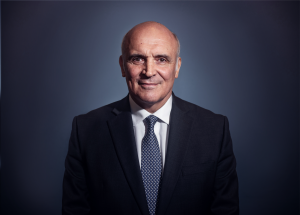The eminent Argentine historian Felix Luna recently said: "The world can fall; but in Argentina, when there’s a problem, people run out to buy dollars."
With the latest economic crisis now setting in, Argentines want U.S. dollars as much as ever. It makes little difference that this problem started in the United States " the downturn is becoming Argentina’s, and when that happens, no one wants to be stuck with pesos.
Some economists estimate that Argentines hold more dollars per capita than any other populace in the world, outside of the U.S. And a survey by Business Monitor Latin America found that 52 percent of Argentines believe the dollar will be the dominant world currency in coming years " which makes them twice as confident in the dollar as other Latin Americans.
The peso’s value has steadily weakened since the middle of last year, and as a result, Argentines have begun to keep more and more of their money in dollars. Private dollar deposits have grown by 30 percent. Unlike what you learn in Econ 101 " that demand decreases as a good becomes more expensive " demand for dollars in Argentina actually increases with the exchange rate, which further drives up the dollar’s price in pesos.
"In Argentine culture, dollars are a currency of saving and reserve," said congressional candidate Carlos Heller, president of Credicoop Bank, in a radio interview. Argentines may have well over $100 billion invested offshore, according to private economists " some say the figure is close to $150 billion.
Not everyone in Argentina, of course, has the means to open a foreign bank account. The rest of the populace can be seen lining up at exchange bureaus to buy greenbacks and keep them where they can. Economists estimate that there are about $10 billion in Argentines’ pockets and safe deposit boxes, and under their mattresses.
Eduarde Roatta, who works in the exchange bureau of Banco de la Pampa, has watched the money-changing lines lengthen. But he says it’s nothing particularly new. "This is a fact of Argentine history. It’s a country that has always gone with dollars."
"Always," though, isn’t exactly correct.
A century ago, Argentina had one of the world’s most stable currencies and strongest economies, and had little interest in the dollar. But repeated devaluations over the decades has made Argentine money undesirable. The decline started during the reign of Juan Peron, who is said to have expressed his dismay over a blossoming domestic dollar trade by ascending to the storied balcony of the executive Pink House and asking his constituents, "Have any of you ever seen a dollar?"
Thus began the fall of the Argentine currency in those post-war years, and the superior strength of the dollar was cinched after the oil shocks of the 1970s. Hyperinflation of Argentine currency in the following decade reached 20,000 percent. After the enforced stability of the 1990s " when the peso was pegged to the dollar " it collapsed again with the rest of the Argentine economy in 2001.
Argentina’s government seems like it’s finally had enough of "dolarizacion," as the predominance of the dollar is referred to here. So officials are trying to institute a "System of Payment in Local Currencies" to eliminate the use of dollars in transactions with its largest trading partner, Brazil. The government would therefore reduce its dependency on dollars, which it doesn’t have a whole lot of " currently about $47 billion in reserves. Imports from Brazil are currently worth about a fifth of that amount.
It remains to be seen whether the purge will work. "The consensus of people working in the negotiations between Argentina and Brazil are saying that the central banks are failing in the attempt, because there is a lot of memory," said analyst Jose Luis Espert. "It is very difficult to change the culture of the entrepreneurs, who are making everyday transactions in dollars."
Even domestic transactions often take place in dollars in Argentina. For a range of purchases " from plane tickets bought through travel agents to cars and houses " Argentines must carry hard, green bills.
When it comes to international trade, though, the dollar dominance is even more pronounced.
But one country has already managed to push through a non-dollar agreement with Argentina. A currency swap with China made Argentina the first Latin American country to buy Chinese yuan " $10 billion worth " without any actual dollars in the middle.
Jose Luis Espert says that, contrary to appearances, the yuan swap might actually just be a tactic to inject more dollars into the Argentine economy. Since Argentina’s economic unreliability prevents it from going directly to the U.S. Federal Reserve with pesos, one of the only ways for the government to buy large amounts of dollars is with a third currency. Hence, the yuan, Espert said.
Which would mean that Chinese yuan and Brazilian reals notwithstanding, dollars are still the gold standard in the Argentine economy.

